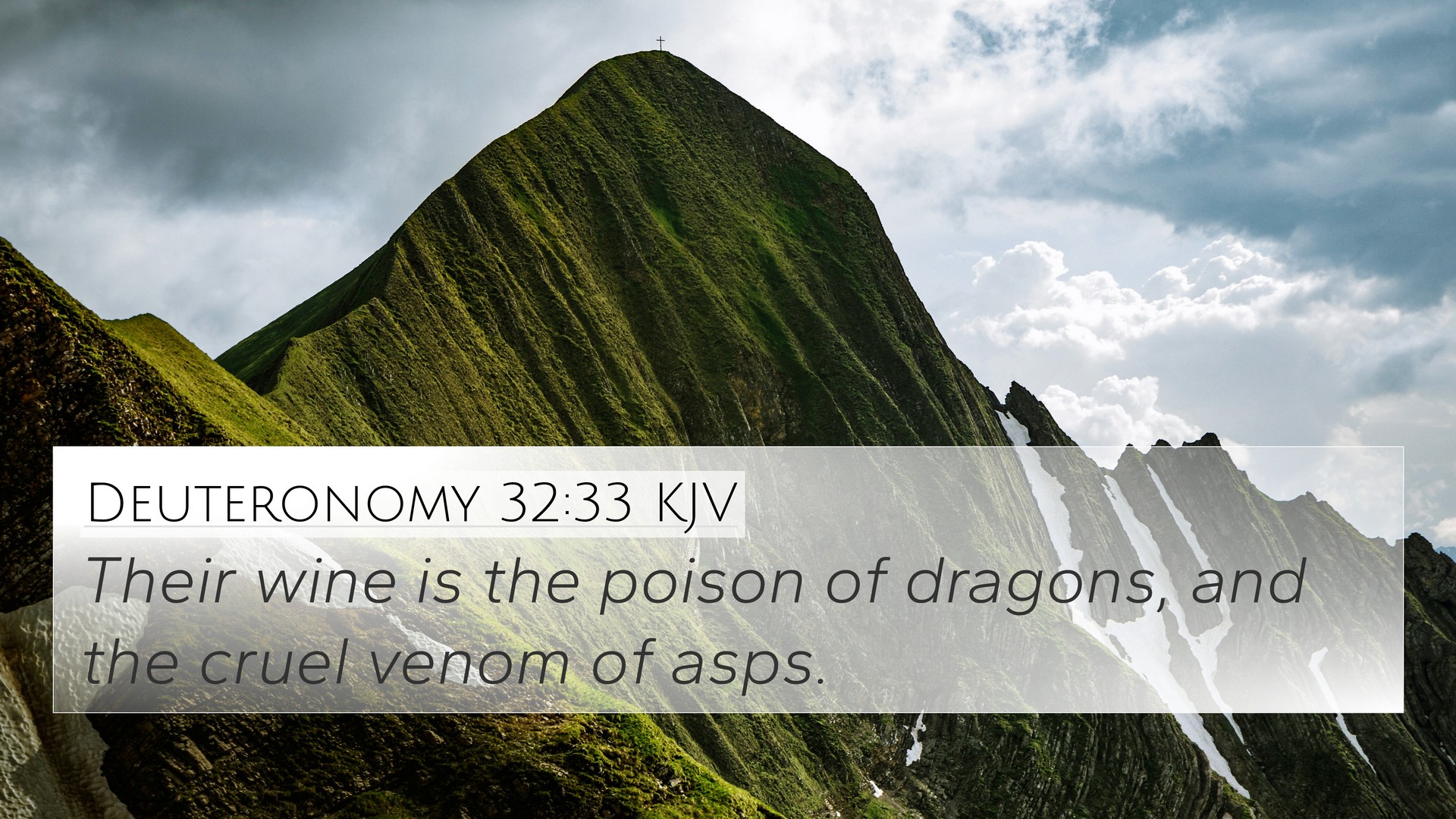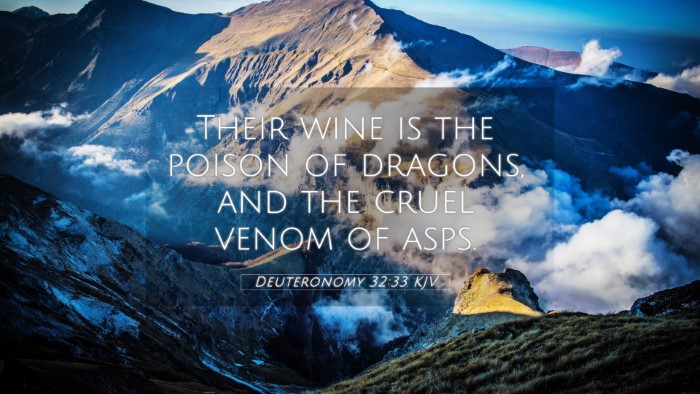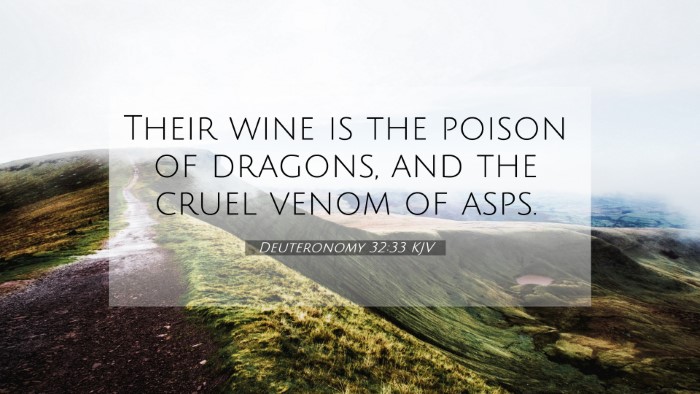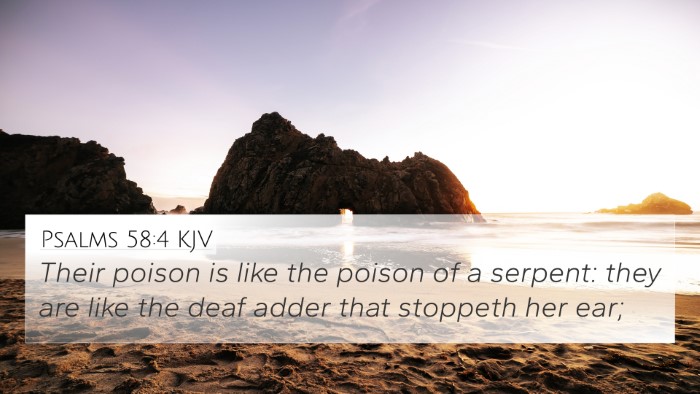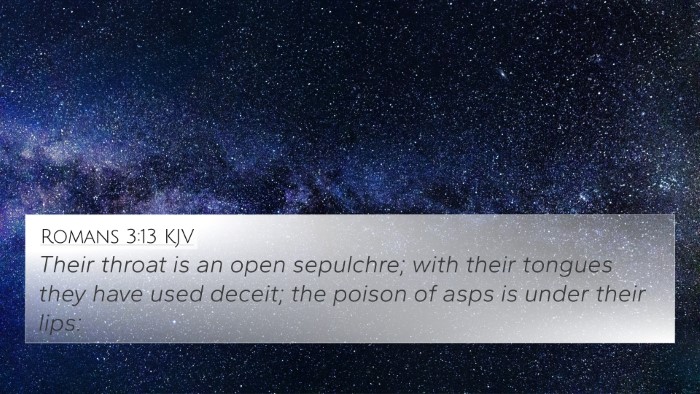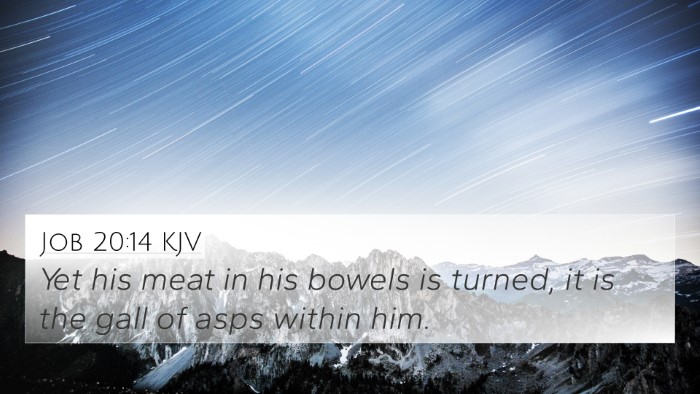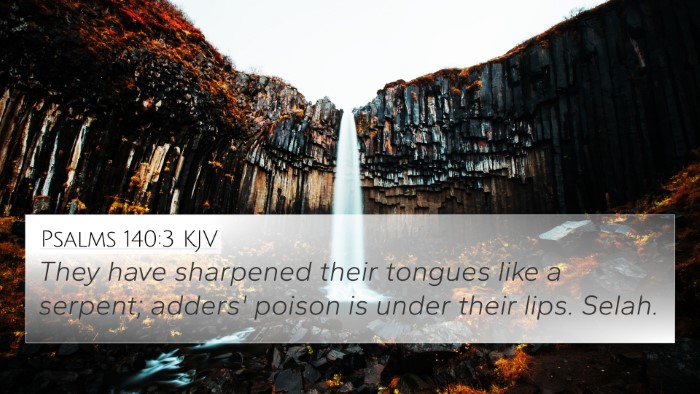Understanding Deuteronomy 32:33
Deuteronomy 32:33 states, "Their wine is the poison of dragons, and the cruel venom of asps." This verse, located in the Song of Moses, serves as a stark reminder of the dangers associated with the corrupting influence of certain nations and their ways, particularly in the context of rebellion against God.
Overview of Deuteronomy 32:33
In this passage, Moses describes the destructive nature of idolatry and unholy alliances made by the Israelites, likening them to poisonous wine that leads to spiritual decay. The imagery of "dragons" and "asps" signifies something lethal, emphasizing the severe consequences of turning away from God.
Insights from Matthew Henry
Matthew Henry emphasizes that the "wine" mentioned is not literal but metaphorical, representing the false teachings and idolatries that lead God's people away from righteousness. He stresses that Moses ardently warns the people of Israel about the perils of such associations and the bitterness they entail. This verse symbolizes the spiritual poison resulting from disobedience and warns against the alluring temptations of foreign cultures.
Albert Barnes' Commentary
Albert Barnes interprets this verse to describe the intense negativity and harm that false doctrines can inflict on believers. He points out that "venom" refers to the destructive nature of lies, which can lead to both physical and spiritual death. This highlights the urgency of avoiding such dangerous entanglements that corrupt faith and relationship with God.
Adam Clarke's Perspective
According to Adam Clarke, this verse showcases the wrath of God against nations that oppose Him. The term "poison" parallels the idea of suffering resulting from rejecting God’s Word. Clarke suggests that just as poison from a snake is life-threatening, the spiritual venom that stems from straying from God can lead to ultimate ruin.
Connections Between Bible Verses
- Deuteronomy 29:18-19: Warns about the consequences of idolatry.
- Jeremiah 2:19: States that evil returns upon those who forsake God.
- Hosea 7:7: Compares the Israelites' unfaithfulness to consuming poison.
- Romans 6:23: Acknowledges the wages of sin as death.
- Proverbs 23:32: Warns of the bitter end of indulgence.
- 1 Corinthians 10:20: Discusses sacrifices made to demons.
- Galatians 5:9: Highlights how a little leaven leavens the whole lump.
Thematic Bible Verse Connections
This verse ties thematically with the broader biblical narrative of faithfulness versus idolatry, showcasing the dire consequences of departing from God. It echoes through various scriptures that highlight God's desire for His people to avoid corruption and remain loyal to Him.
Cross-Referencing Biblical Texts
Understanding Deuteronomy 32:33 in the light of its cross-references is crucial for deeper biblical comprehension. Tools for Bible cross-referencing, such as Bible concordances and cross-reference guides, can enhance studies on this subject. For example, looking at how this verse connects with other scriptures may reveal patterns of disobedience and their consequences throughout both the Old and New Testaments.
Textual Analysis and Insights
Comparative analysis of these verses can assist in identifying connections and parallels between the text in Deuteronomy and teachings in the New Testament, particularly in understanding how spiritual delusion has been a recurring theme. Use careful scriptural cross-referencing to study Moses' warning alongside Christ’s teachings, which often addressed similar issues of apostasy and rebellion.
Conclusion
Deuteronomy 32:33 serves as a vital warning against the dangers of disobedience and the allure of foreign ideologies. This verse, when studied alongside other related scriptures, reveals a grand narrative of God's call to faithfulness, urging believers throughout history to reject the corrosive influences of sin and remain steadfast in their commitment to Him.
